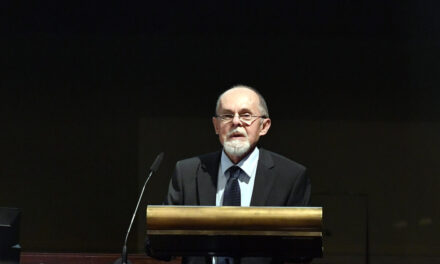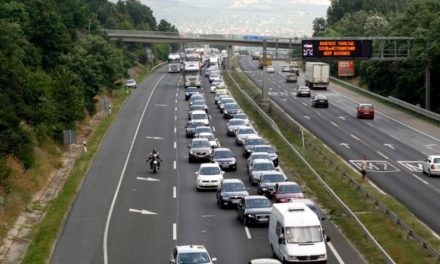The institutionalization of constituencies abroad would complete the unity of national unification in the area of electoral law. Written by Attila Zsolt Borbély.
At the beginning of the summer political cucumber season, it became a topic that the government might amend the election law, including the institution of constituencies outside the borders. The question was mainly dealt with by the opposition press, from Telex to Index, 444, Transtelex, 24.hu, HVG and Válaszonline, in analyzes that could be said to be worthy more than once. At the beginning of September, the Democratic Coalition launched an online signature collection in the matter, with the obvious aim of demonstrating the "will of the people" against the expansion of the suffrage of the separated Hungarians.
On the other hand, István Ujhelyi spoke with surprising sobriety, explaining that the proposal was not from the devil,
and that former prominent members of his former party also made a similar proposal, with the addition that the voters in these districts should vote for the individual candidates nominated by themselves, not for the candidates of the Hungarian parties. Ujhelyi called the idea of amending the law debatable, which could correct the current serious shortcomings of the electoral law, if it is adopted in a way that strives for national consensus. Experts, Hungarian politicians outside and inside the border, but also Slovak public figures spoke out on the issue, the latter of course with the predictable irritation and rejection.
Officials of the Hungarian government deny that the topic is on the agenda, but it is still worth examining from a national political point of view.
As the DK's action also indicates, this issue is suitable for anti-national forces to create a mood against Hungarians abroad.
They have serious experience in this, because their victory in 2002 was partly due to the fact that
At the suggestion of Ferenc Gyurcsány, they attacked the Orbán-Nastase pact they had advocated before, shouting with 23 million Romanian workers,
casually identifying the then number of citizens of the state entity called Romania with the number of employees, thus including children and the elderly, not to mention de-Romanizing one and a half million Hungarians. Even during the 2004 referendum, those who would otherwise open Hungary's and Europe's doors wide open to economic refugees from the third world and the unfit, parasitic, aggressive Islamic conquerors did not shy away from open incitement.
And although the spokesperson of the RMDSZ, Csoma Botond, speaking on the issue, called such a broadening of the voting rights of Hungarian citizens living outside the border as possible and conceivable, and also referred to existing precedents, complete consensus is not expected in Transylvania either, the inspiration of the former SZDSZ can also be felt here, the anti-nationalism and a way of thinking showing a peculiar mixture of national neutrality.
And I'm not only thinking of the intellectual well poisoners of Boróka Parászka - who, as you can remember, celebrated the annexation of Transylvania with the Romanians and took her children to the festival, and then wrote about all this in the press, for whom the farewell in Csíksomlyó is a "traveling circus in a franchise system", and even I could list his similar expressions for a long time - but for those who think that no one should interfere in the affairs of Transylvania, and neither should we interfere in those of the motherland.
One of the most prominent and well-known representatives of this way of thinking is former RMDSZ president Béla Markó, who makes a sport of attacking the Hungarian Prime Minister's national strategic principles in the media.
Speaking on this issue, he said that he considered the idea dangerous and that he believed from the beginning that citizenship and the right to vote should have been separated from each other.
It is important to see that two paradigms exist side by side in the matter of the noble idea of national unity: the all-Hungarian, which can be summed up most succinctly as "one nation", and Dezső Szabó expressed it most beautifully in his much-cited idea that "every Hungarian is responsible for all Hungarians". , and the other is stuck in the situation, the paradigm of fragmentation, whose horizon extends to the border of the country in which they live.
Consciously or unconsciously, they strengthen Trianon and raise the fragmentation of the nation to a spiritual level.
At the same time, it is a fact that there are quite a few opponents of the possible law amendment in question even within the Fidesz electoral camp. It is also clear that the majority of analysts, opinion makers and voters will see Fidesz's consolidation of power behind such an amendment.
But could all of this be a reason not to take a nationally correct step? "Only blood and language can hold people together and the memory of a common past," wrote Albert Wass. As well as joint destiny formation, common goals and faith in a common future, we can add to the spirit of the writer prince.
Since the adoption of the Trianon peace decree, the Hungarian political elite's primary task is not only to do everything for the preservation and growth of the entire Hungarian nation, but also to fight against the "disintegration" of individual parts of the nation, against the centrifugal historical forces, in order to preserve and, if possible, institutionalize the the unity of will of Hungarians in the Carpathian Basin.
This is a historical order of existence from a national point of view, even if the communist leadership until the mid-eighties did the exact opposite of what it should have done: it tried to erase even the existence of those trapped outside the border from the minds of the younger generations.
And even if the left-wing governments, based on the philosophy of "dare to be small", concluded basic agreements amounting to national treason, mutilated the status law and missed irreversible historical opportunities, such as asking for the price of supporting Romania's EU accession, and instead insist on the creation of three levels of autonomy for Transylvanian Hungarians.
The policy of the right-wing governments after the system change, the state institutional system built by the first freely elected cabinet led by József Antall, served to counterbalance the "disintegration".
from the Office of Hungarians Across the Border to the Illyés és Teleki László Foundation to Duna TV, and after 1998 the status law, the Hungarian Permanent Conference and the Forum of Hungarian Representatives of the Carpathian Basin, to name only the most important ones.
The extension of Hungarian citizenship in 2010 opened up the possibility for the descendants of Hungarians who were deprived of their citizenship as a result of the Trianon Robbery to claim it back and participate in the formation of the nation's political will.
This was the real caesura in national politics, the most important step in the implementation of the program of cross-border national unification announced in 1998. Since 2014, the fact that the Hungarian Parliament is the nation's parliament is not just a nice metaphor, but a fact of public law.
The main issue is not whether seven, nine or ten districts would be out of bounds, this belongs to the fine mechanics of electoral regulation.
If we start from the fact that one million Hungarian citizens live outside the current national borders in the Carpathian Basin, while less than ten million live within it, even more districts could be justified.
And the point is not whether they will vote for their own candidates or candidates of Hungarian parties in the imagined new constituencies, nor how many representatives each party will have as a result of the possible amendment. There is an analyst who believes that Fidesz may lose on customs what it gains on the tax.
From a national political point of view, the most important dimension of this step would be that it would fulfill the idea of national unification in the field of suffrage.
Cover image: colt János Garai prepares to cast his vote
Source: MTI/Zsolt Czeglédi













